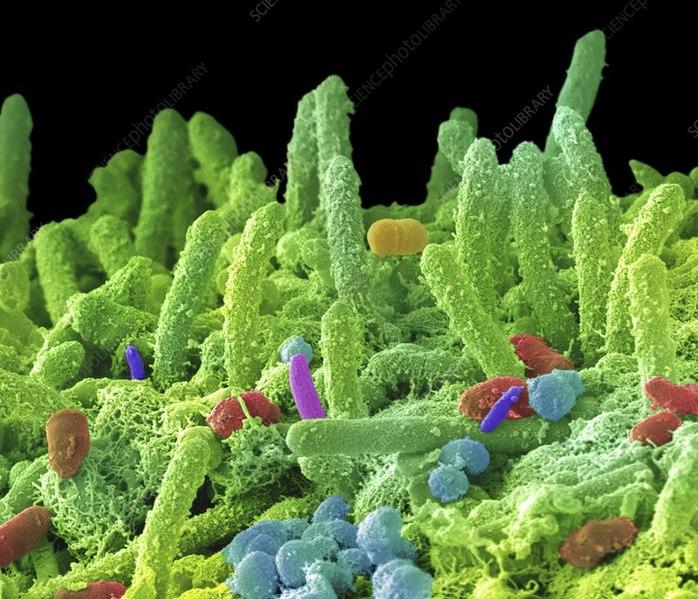Oral Microbiome Linked to Lung Cancer Risk
, by Elise Tookmanian, Ph.D.
The oral microbiome is associated with lung cancer risk, according to a study published in the Journal of the National Cancer Institute on August 6, 2022.
Previous studies have suggested an association between the oral microbiome and lung cancer risk, but small study size limited the strength of these results. The current study, led by Emily Vogtmann, Ph.D., M.P.H., Earl Stadtman Investigator in the Metabolic Epidemiology Branch, is the largest study of this kind to date. Using data from three DCEG cohorts, the Agricultural Health Study, NIH-AARP Diet and Health Study, and the Prostate, Lung, Colorectal, and Ovarian Cancer Screening trial, investigators compared 1,306 lung cancer cases found over the course of the three studies to a reference group of 3,304 unaffected individuals. Jianxin Shi, Ph.D., and Mitchell H. Gail, M.D., Ph.D., senior investigators in the Biostatistics Branch, were instrumental to the analysis of this complex dataset.
The investigators found that greater alpha diversity, a measure of the number and/or the abundance of unique bacterial taxa, was associated with a lower risk of lung cancer. Additionally, the abundance and presence of specific bacterial genera were associated with lung cancer risk. These associations were particularly strong for squamous cell carcinoma cases and among former smokers.
To further confirm the results of this study, research in other populations, especially populations with more racial, ethnic, and socioeconomic diversity, is needed.
Reference
Vogtmann E et al. The oral microbiome and lung cancer risk: An analysis of 3 prospective cohort studies. J Natl Cancer Inst. 2022.
